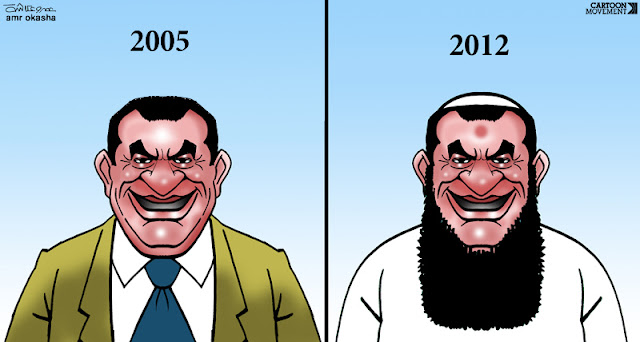There
are two parts to this
brilliant article by Beesaan el Shaikh in Al Hayat (Arabic) which I believe is an
imperative read for anyone interested in the Arab uprising.
The
first part of the article uses the tragedies generated by the revolution as a
very compelling argument NOT to support it. The second part, near the end,
turns the argument around making a simple but slam-dunk case for the
revolution.
I
want to use the first part to rephrase a position I expressed in the very
beginning of this revolution, days before the first Assad speech and the
subsequent violent turn of the uprising: I expressed then my hope that Assad
would do the wise thing and grab the opportunity to reform the regime by
himself, because that was the only transition that would avoid destroying Syria,
or handing it to Islamic extremists.
I
was naïve in my hopes, obviously. But I believe that hope is a moral
imperative. I knew then, like all those who lived through Lebanon's civil war, that
no matter where it happens on this earth, or why, or how legitimate, when an
uprising turns into an armed rebellion, there is absolutely no controlling of
the damage it can make to the structure of society and its ability to recuperate
post conflict (think Iraq, Lebanon, but also Salvador, Tchetchnia, or Sri Lanka
more globally).
The
unspeakable price of civil violence in terms of social dismantling (even more
so than the toll on human life and heritage), is why I still believe that any
people who has regime change in progress (i.e Tunisia, Egypt) - or in
perspective (i.e Jordan, Morocco, or the Gulf in the coming 5 to 15 years) -
must bend itself backwards twice, maybe thrice, before engaging in violent struggle,
or violent ‘defense of the achieved revolution’ – as opposed to radically
peaceful rebellion or political compromise.
One
of the reasons I respect Moaz el Khatib so deeply is his awareness of this
fact, and his courage to remain constantly open to compromise with the regime
for the sake of ending violence – because he knows that no matter how high the
price of such compromise is, it will always be lower than the one of sustained
violence.
Don’t
get me wrong, just like Beesaan el Sheikh says in her article, I believe that there
is no choice BUT to support the Syrian revolution because it is the only
legitimate and humanly acceptable path forward. But I certainly hope that idealists
learn the lesson and understand that wars are, under all circumstances,
unwinnable: because even by winning them, we destroy the basic social
infrastructure that makes that victory worth anything.
This
might sound obvious to some, but the consequence is less so: only a slower
transition, or a stubbornly peaceful uprising can come at a lower cost.
I want
to end by drawing a relevance to Tunisia and Egypt: compromise is a high price
you might need to pay to avoid the higher price of a torn society. And if
compromise is impossible (and it should take a lot before you get to this
conclusion), than maintain your struggle peaceful at all cost (i.e no military repression
of ‘medieval forces’). The alternative is worse than you can ever imagine or
calculate.





